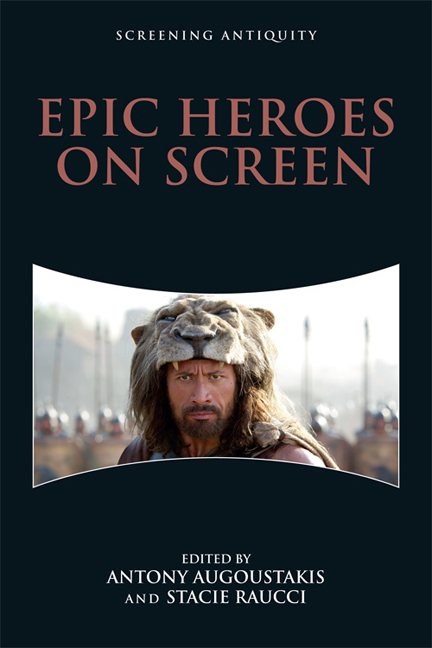8 - The Changing Faces of Heroism in Atlantis (2013–15)
Published online by Cambridge University Press: 24 April 2021
Summary
INTRODUCTION
The short-lived BBC television series Atlantis presents us with a range of characters who go on their own heroic journeys. The rather bland but brave and honorable protagonist Jason (Jack Donnelly) must confront his dark side; the unheroic, greedy, drunken Hercules (Mark Addy) becomes a tragic hero; and the clumsy but likable Pythagoras (Robert Emms) uses his brains to help his friends. By the end of the second and final series female characters Ariadne (Aiyisha Hart), Medea (Amy Manson), and Medusa (Jemima Rooper) also display different aspects of heroism, moving respectively from princess to warrior, assassin to helper maiden, and victim to monster to self-sacrificing heroine. For modern readers and viewers, characters from Greek mythology can seem uninteresting and irrelevant today. Particularly Perseus, Jason, Theseus, and Bellerophon can all become interchangeable as young men who slay monsters and go on quests, with few people remembering (or caring) who did what, and there are almost no heroic women characters for female viewers to relate to (Atalanta is the notable exception). By creating male characters with their own specific peculiarities and flaws, and female characters with heroic potential, the producers of Atlantis present us with heroes that we can relate to, even though they are grounded in the ancient world. Modern viewers are also versed in the tradition of the bildungsroman, and are familiar with television story arcs where protagonists change and grow as individuals. By presenting us with characters who change over time and learn from their heroic journeys the Atlantis writers aim to sustain the interest of viewers, so that they continue to watch to the end of the series.
Atlantis was a family-oriented fantasy adventure series set in ancient Greece, which aired on BBC1 from 2013 to 2015 on Saturday evenings in the family drama viewing slot initially established by the return of Doctor Who in 2005, previously filled by Robin Hood (2006–9) and Merlin (2008–12). Atlantis was conceived by writing team Julian Murphy and Johnny Capps, to follow their previous popular series Merlin, which had concluded after five seasons.
- Type
- Chapter
- Information
- Epic Heroes on Screen , pp. 125 - 140Publisher: Edinburgh University PressPrint publication year: 2018



